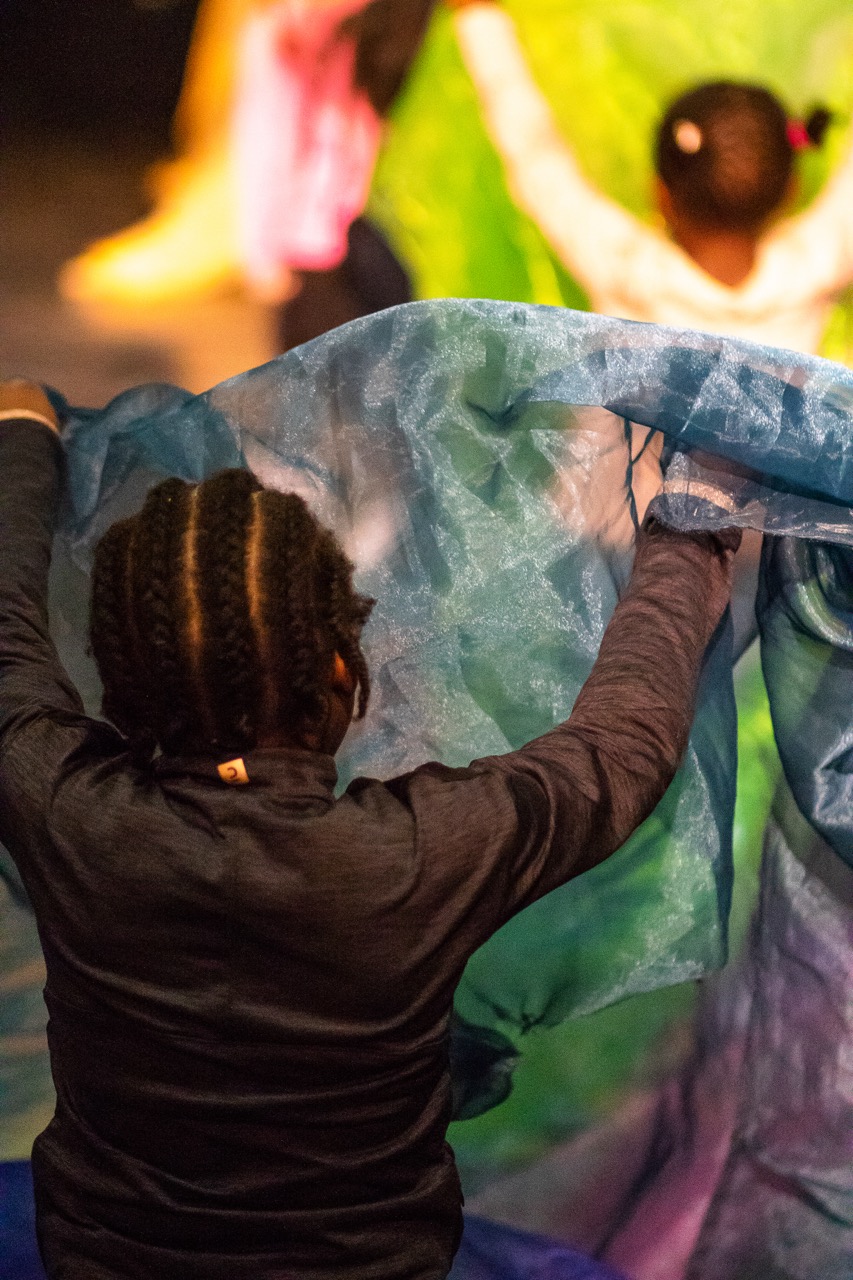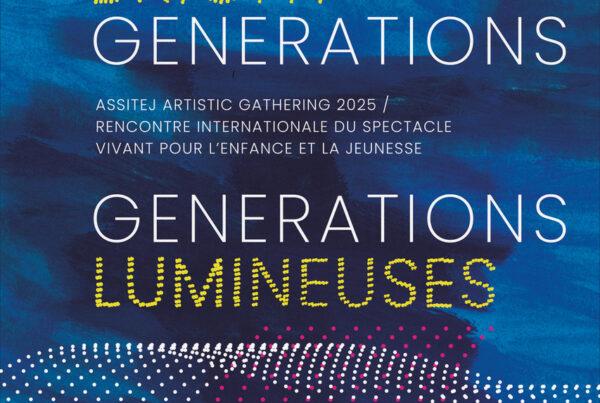A European training project for arts and early childhood – from best practices to a collective statement
From 2020 to 2023, four arts organisations who create work for babies and young children – ACTA in France, laSala in Spain, Starcatchers in Scotland, and 2turvenhoog in the Netherlands – began working together to disseminate observations and learning from contemporary artistic practice for young children to professionals working within the social, health, culture, education and childcare sectors.
Thanks to the support from Erasmus+, they organised eight 2-day training visits in all four countries with the aim of raising participants’ awareness of artistic awakening(1) and integrating artistic practice into their pedagogy. 69 participants visited cultural, social and early childhood organisations, took part in reflection workshops, and attended conferences and artistic performances.
The initial aim was to share best practices, exposing the participants to different ways of working to challenge or complement their own work. However, they soon expressed a strong desire to reflect collectively on a new dynamic in the relationship between those involved in an artistic experience for babies and young children (artist, early childhood or education professional, parent and child).
During the visits, discussions between participants sharing the same profession highlighted similarities in the expectations and needs of each sector from all four countries, paving the way for a European model. In addition, the diversity of profiles that were represented throughout the project – early childhood professionals, social workers, primary school teachers, artists, librarians, cinema and arts administrators, university researchers, funders, and decision-makers – allowed for all voices to be heard. Finally, the contexts in which these ideas were developed and best practices were observed were similar in all four countries, which further enabled participants to find common ground; the coordinating organisations are active in suburban, economically disadvantaged areas, populated by families of diverse nationalities and cultural backgrounds.
Nine principles for an authentic artistic awakening at a European level
The project coordinators decided to create a collective document which would highlight the expectations and needs of each sector and outline the model for arts for babies and young children desired by the participants, through a set of principles for its protection and implementation at a European scale. It provides concrete examples, which were observed by the participants during their visits, that can act as inspirations, be reproduced, or adapted in different contexts.
Themes such as the recognition of the baby and child’s innate artistic genius, treating children’s, parents’, artists’ and professionals’ contributions and expertise equally, the need for a child-centred, accessible environment that fosters a relationship with nature and the outdoors and a connection to the senses, the recognition of each family’s cultural heritage, the essential trust between funders, artists, professionals and families, and the interrogation of our work in light of the climate emergency are covered in the document. It promotes the intrinsic value that access to and participation in arts and culture have, art being an end and not just a tool to achieve educational or social objectives. It also advocates for long-term support of artistic experiences for babies and young children and the need for sustainable funding.
While this document was created in a predominantly North-Western European, suburban context, the project participants and coordinators hope that the principles will resonate with childcare and arts professionals’ work across the world, contributing to the reflection on and advocacy for authentic artistic experiences for babies and young children. The document is available in English, French, and Catalan.
- Artistic awakening is the ability to wonder, to be curious, to use our imagination and to experience art and culture from the day we are born. See the document for the full definition.
To find out more:
The detailed reports of each training visit are available to download on ACTA’s website, in French and English.
ACTA is a theatre company based in Villiers-le-Bel (Greater Paris region, France) that creates performances for young and very young children, leads community engagement projects, runs a residency program for TYA creation, organises the PREMIÈRES RENCONTRES festival, and regularly provides training to early childhood and arts professionals.
laSala is a centre based in Sabadell (near Barcelona, Spain) dedicated to the production and programming of artistic work for young audiences and families. Every year, they organize the ElPetit festival, an international arts festival for 0–5-year-olds.
2turvenhoog inspires, supports and guides both new and established artists to develop high-quality performing arts in the social environment of and in relation to young children through the organization of art encounters in childcare facilities and art spaces in Almere (near Amsterdam, Netherlands). Every year in April, 2turvenhoog organises an international performing arts festival in Almere and Haarlem.
Starcatchers is Scotland’s Arts and Early Years organisation. They carry out their mission of inspiring babies, toddlers and young children through creative events and productions, supporting artists across all artforms, inclusive community engagement projects, a training and development programme for Scotland’s early years workforce, and advocacy for children’s rights.




